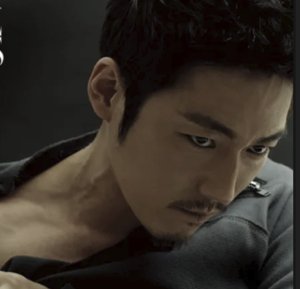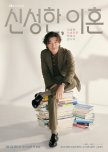A Refreshing Side of Cho Seung Woo - Divorce - Class Difference and Social Issues
I love Cho Seung Woo as the corky Hwang Shi Mok in the Stranger series. It is the best he has ever done as an actor. Still, I would be remiss not to enunciate how much I enjoy him as Shin Sung Han, a great pianist turned divorce lawyer. I've never seen Cho Seung Woo like this, which could be why I greatly appreciate the character. His approach to the role of an uncle, friend, lawyer, and brother is brilliant. It suits him so much that it's hard to separate the actor from the character. I love how each episode addresses or tries to shed light on different divorce scenarios, and even though it's viewed as evil, sometimes it's a necessary evil. More importantly, I love SSH's approach to it.
I commend the writer for Shin Sung Han, but all the credit goes to Cho Seung Woo for embodying such an intelligently funny, creative, caring, simple yet complicated man driven by love, grief, and the need for justice. It's not just Cho Seung Woo that shines in this drama. I love his tight-knit friendship with Jeong Moon Seong and Kim Seong Kyoon, how they feed off each other while at the same time always being acutely aware of each other's weaknesses, strengths, and pains, no words needed, knowing when to give each other the space they need and when to be each other's comfort. Truly each other's extensions. They are an accurate depiction of what and how friendship should be. I love it.
Many people try to hold on to a union for the wrong reasons. Some people do it solely for their children. Some do it because they think divorce will make them a failure and their family and society will ostracize them. Some even do it because they don't believe they can survive financially. The easiest thing to do to solve a problem is absolutely nothing. But, when one does nothing to appease family or society, that doesn't make the problem disappear. No one goes into a marriage thinking they will divorce. However, certain things in a marriage, be it gaslighting, cheating, or abuse (physical, mental, emotional), are unforgivable and require a divorce for the mental health of all involved. Getting a divorce, especially in a society such as South Korea and others like it, where it is considered taboo, has to be one of the most complex, if not the most frightening, decisions; I admire Divorce Attorney Shin for trying to convey in their special way that these are all pitfalls and misconceptions that stand in the form of progress.
I loved this drama's journey, but most importantly, I loved the ending. Yes, it was very K-drama-like, but I still liked it a lot. As much as Divorce Attorney Shin is about the social issues and suffering that arise from a hierarchical institution that, without thought or consequences, openly accepts social discrimination regarding different class marriages, divorce, custody issues, broken family relationships, parenting rights, and gender stereotypes, it is also an inspirational, dramatic story about adults and children struggling to live their mundane lives with these inherited issues. But rather than give in, they fight to be the change they want to see happen, to find their own way to a happy and fair life with the support of friendships and family ties that transcend blood relations.
The drama touches on many social issues, but none more important than the inequality perpetuated by the influence of historically structured social class differences that drive inequality and remain a hindrance to change. But the core of the story for me is the friendship between three friends who have a stronger bond than blood, which is the charm of this drama. I like that Shin Sung Han's final battle was not just about winning but about righting the wrongs adults made, yet a child was paying the price, one that was very personal to him. I will admit I thought the drama should have taken a much stronger stance towards the Vietnamese wife and the stepmom rather than backtrack on its strong message with the different cases it portrayed early on. I hope the message this drama tries to convey gets across, regardless. Yes, it's a work of fiction, but as far as I am concerned, there is always some truth in every fictional story.
Kudos to all the actors -- the adults but especially the child actors, the little men of this drama Kang Hyeon-U and Seo Gi-Yeong, who are mature far beyond their little ages, suffering in silence to protect those they love. They put the adults to share. Lastly, I would be remiss not to praise Noh Susanna, who was brilliant as Jin Yeong-Ju, the materialistically socially obsessed evil stepmom and wife who couldn't escape the influence and, worse, the trap of class hierarchy. I will miss Cho Seung Woo, but I hope to see him in Stranger 3, where he shines the most if the K-drama gods allow it.
I commend the writer for Shin Sung Han, but all the credit goes to Cho Seung Woo for embodying such an intelligently funny, creative, caring, simple yet complicated man driven by love, grief, and the need for justice. It's not just Cho Seung Woo that shines in this drama. I love his tight-knit friendship with Jeong Moon Seong and Kim Seong Kyoon, how they feed off each other while at the same time always being acutely aware of each other's weaknesses, strengths, and pains, no words needed, knowing when to give each other the space they need and when to be each other's comfort. Truly each other's extensions. They are an accurate depiction of what and how friendship should be. I love it.
Many people try to hold on to a union for the wrong reasons. Some people do it solely for their children. Some do it because they think divorce will make them a failure and their family and society will ostracize them. Some even do it because they don't believe they can survive financially. The easiest thing to do to solve a problem is absolutely nothing. But, when one does nothing to appease family or society, that doesn't make the problem disappear. No one goes into a marriage thinking they will divorce. However, certain things in a marriage, be it gaslighting, cheating, or abuse (physical, mental, emotional), are unforgivable and require a divorce for the mental health of all involved. Getting a divorce, especially in a society such as South Korea and others like it, where it is considered taboo, has to be one of the most complex, if not the most frightening, decisions; I admire Divorce Attorney Shin for trying to convey in their special way that these are all pitfalls and misconceptions that stand in the form of progress.
I loved this drama's journey, but most importantly, I loved the ending. Yes, it was very K-drama-like, but I still liked it a lot. As much as Divorce Attorney Shin is about the social issues and suffering that arise from a hierarchical institution that, without thought or consequences, openly accepts social discrimination regarding different class marriages, divorce, custody issues, broken family relationships, parenting rights, and gender stereotypes, it is also an inspirational, dramatic story about adults and children struggling to live their mundane lives with these inherited issues. But rather than give in, they fight to be the change they want to see happen, to find their own way to a happy and fair life with the support of friendships and family ties that transcend blood relations.
The drama touches on many social issues, but none more important than the inequality perpetuated by the influence of historically structured social class differences that drive inequality and remain a hindrance to change. But the core of the story for me is the friendship between three friends who have a stronger bond than blood, which is the charm of this drama. I like that Shin Sung Han's final battle was not just about winning but about righting the wrongs adults made, yet a child was paying the price, one that was very personal to him. I will admit I thought the drama should have taken a much stronger stance towards the Vietnamese wife and the stepmom rather than backtrack on its strong message with the different cases it portrayed early on. I hope the message this drama tries to convey gets across, regardless. Yes, it's a work of fiction, but as far as I am concerned, there is always some truth in every fictional story.
Kudos to all the actors -- the adults but especially the child actors, the little men of this drama Kang Hyeon-U and Seo Gi-Yeong, who are mature far beyond their little ages, suffering in silence to protect those they love. They put the adults to share. Lastly, I would be remiss not to praise Noh Susanna, who was brilliant as Jin Yeong-Ju, the materialistically socially obsessed evil stepmom and wife who couldn't escape the influence and, worse, the trap of class hierarchy. I will miss Cho Seung Woo, but I hope to see him in Stranger 3, where he shines the most if the K-drama gods allow it.
Cet avis était-il utile?


 2
2






















